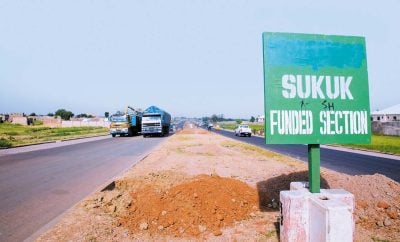
The role that overseas remittances play in African economies is well-known. An estimated $95.6bn a year flows into the continent, making it one of the most important sources of foreign currency. African banks compete with global money transfer companies, mobile money operators and increasingly, fintech firms for this huge market.
There is now also growing enthusiasm for much of this money to be used to support infrastructural development and other long-term projects – but much depends on the ability of African governments to build relationships with their diaspora.
An estimated 160m people who were born on the African continent now live and work in other parts of the world. The money they send back to Africa via traditional banks, money transfer agencies and fintech operators accounts for 2-3% of Africa’s GDP and supports the living costs of an estimated 200m relatives.
The $95.6bn figure was a big jump on the $37bn recorded in 2010, and the $87bn in 2019, prior to the pandemic. It also compares favourably with official development assistance to Africa of $35bn and foreign direct investment to sub-Saharan Africa of $88bn in 2021.
A breakdown of World Bank figures shows that $46.6bn of the $95.6bn went to North Africa and $49bn to sub-Saharan Africa. By comparison, remittance inflows to Europe and Central Asia reached $74bn; those to East Asia the Pacific were $133bn; to South Asia $157bn; and to Latin America and the Caribbean, $131bn in 2021.
The two biggest African destinations were Egypt and Nigeria with $31.5bn and $19.2bn respectively, with all other sub-Saharan countries lagging far behind. Ghana was the best of the rest, receiving $4.5bn, Kenya had $3.7bn and Senegal $2.7bn.
A large proportion of Africans working overseas are well placed to transfer money back to family members to cover short-term food, health and education bills. According to the US Migration Policy Institute, sub-Saharan Africans living in the US are more likely to be employed and to be well educated than the average foreign worker, with 40% holding university degrees, in comparison with 32% of the total US population.
The World Bank, which forecasts a 7% rise in remittances to Africa for 2022, describes them as a “paramount source of international financing for developing countries”. In its Migration and Development Brief in 2022, it predicted that the “fundamentals remain positive for continued gains in remittance flows to the remainder of Africa, as the influence of ‘altruistic’ motivations that were demonstrated in Africa and South Asia during the peak pandemic years will likely carry over to the period of sharp increases in staple food prices.”
Current costs and operators
Given the importance of remittances, as well as the volumes involved, banks and other financial institutions need to reduce the cost of transferring money to Africa. At present, it costs roughly twice as much to send money to sub-Saharan Africa as to South Asia.
The average fee in sub-Saharan Africa is 8.46%, according to the International Fund for Agricultural Development, far higher than the 3% targeted by Sustainable Development Goal 10 on reducing inequality within and among countries. Cutting these charges will encourage more Africans working overseas to transfer money back to Africa and could also ease the transfer of money within the continent and within individual countries.
Some African banks are already cutting their charges in response to the low rates offered by mobile money operators, such as Airtel and Kenya’s M-Pesa, and also sector specialists, such as WorldRemit and South Africa-based Mama Money. Long-established transfer services, such as Western Union, are still popular for the transfer of relatively large sums from overseas into Africa.
Unsurprisingly, mobile money is the preferred conduit in Kenya and other markets where the method is firmly entrenched. However, market regulation varies a great deal from country to country, with mobile money firms unable to operate through agencies in some states.
A case for reducing costs is illustrated by Zimbabwe, which was the fifth biggest recipient of overseas remittances last year with $2bn, with banks and newer competitors launching products to attract a bigger share of the market. Fintech firm EcoCash has set up a mobile wallet that can receive payments directly from US-dollar-denominated PayPal accounts.
In June, the country’s biggest traditional bank, CBZ responded to digital-first competitors by launching its CBZ Remit service for anyone to use, even those without domestic Zimbabwean accounts. In a statement, the bank said: “To access this service, there are no bureaucratic processes to be followed but customers simply need to produce their national ID or passport in order to send or redeem money.”
Transfers must be at least $2 and are subject to a 2% charge.
Diaspora bonds
The African Development Bank (AfDB) held a Forum in Abidjan in December aimed at discussing how best to harness the financial potential offered by the huge remittances sent to the continent by the diaspora, as well as their varied skills and expertise.
Subjects under discussion included securitising remittances and diaspora bonds. According to an AfDB statement: “Securitised remittances would offer African governments robust investment collateral and a source of financing through bond issuance.”
The overwhelming view of delegates was that more should be done to engage with the diaspora. AfDB president Akinwumi Adesina commented: “The African diaspora has become the largest financier of Africa! And it is not debt; it is 100% gifts or grants, a new form of concessional financing that is the key for livelihood security for millions of Africans.”
He added: “Because the flow of remittances to Africa is high, rising, and stable, it offers huge opportunities to serve as collateral to secure financing for African economies. African countries should securitise remittances to promote investments, especially for infrastructure on the continent.” Adesina even advocated allowing the diaspora to vote in African elections, so that they feel more a part of the continent’s economic future.
Diaspora bonds are government debt securities bought by citizens and their families living abroad. The rates on offer usually incorporate a “patriotic discount”, allowing governments to buy at below market rates. Four African countries have already issued diaspora bonds: Ethiopia, Ghana, Kenya and Nigeria but the results have been mixed.
Ethiopia launched diaspora bonds in 2008 to finance general projects and again in 2011 to fund the construction of the biggest power project in sub-Saharan Africa, the Grand Ethiopian Renaissance Dam (GERD), although both raised far less capital than hoped for. Alongside India and Israel, Ethiopia is one of only three countries to have issued multiple diaspora bonds, with both of the others achieving success by making use of commercial banks.
The Ghanaian government now allows people to hold dual nationality, including those whose ancestors lived in Ghana even when they themselves have not, and has granted them the right to purchase diaspora bonds. This is similar to Ethiopia’s long-standing rules that allow the Ethiopian diaspora to buy shares and otherwise invest in private Ethiopian banks or even set up their own banks and financial services companies, despite the fact that they have not been born in Ethiopia.
Kenya’s infrastructural bonds have been targeted at Kenyans living abroad but have also been open to other investors, although new President William Ruto has promised to launch specific diaspora bonds in the near future.
Nigeria’s first diaspora issue in 2017 raised $290m via a five-year bond. Overall, however, the market is still relatively young and governments need to do more, including on providing transparency on how the proceeds are used, and not rely solely on national affiliation from their overseas diaspora.
Making the switch
The big question is whether it will be possible to encourage people to invest a larger proportion of their remittances in bond and other instruments. Where they are used to cover urgent, short-term needs, this is unlikely but about a quarter of all remittances sent to Africa are already saved or invested.
Investing the money in bonds would generate greater income and security for families in the longer term, with Ruto suggesting a 7% return on Nairobi’s planned new bond. As Adesina says, such bonds could serve as a countercyclical source of finance and social protection but banks and the rest of the financial services industry need to step up to create a cultural change towards investment.
The banks have a key role to play in encouraging longer-term investment. Better financial education could demonstrate that investing remittances can generate more long-term benefit for family members. However, banks must also become more willing to offer services to potential low-income customers; transfer fees must be reduced, particularly for relatively small sums of money; and banking regulations need to be designed to enable this.
At present, African governments have too little information on where diasporans are located, what skills they possess and how interested they are in engaging with development in their home countries.
In April 2022, the World Bank launched a working group to improve data on remittance flows to support the SDG indicators on reducing remittance costs and increasing the volume of remittances. This will also support the first objective of the Global Compact on Migration, to improve data.
Want to continue reading? Subscribe today.
You've read all your free articles for this month! Subscribe now to enjoy full access to our content.
Digital Monthly
£8.00 / month
Receive full unlimited access to our articles, opinions, podcasts and more.
Digital Yearly
£70.00 / year
Our best value offer - save £26 and gain access to all of our digital content for an entire year!

 Sign in with Google
Sign in with Google 



